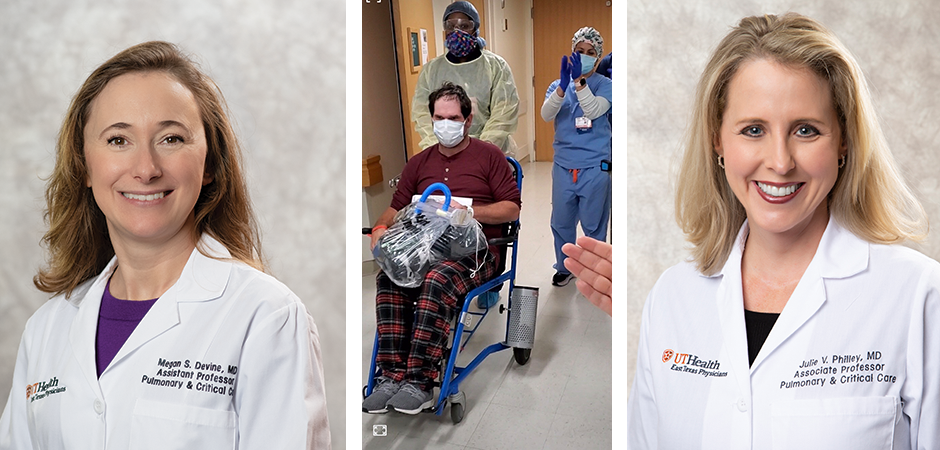Rodney Davis’ bout with COVID-19 was so bad that he wants to make sure he can do anything he can to help others suffering from the virus.
Davis, 44, of Grand Saline, plans to participate in the convalescent plasma research being conducted by physicians with The University of Texas Health Science Center at Tyler and UT Health East Texas with hopes of providing a recovery pathway for patients.
Before he was discharged from the hospital Friday, Davis was asked by physicians if he’d be willing to participate in the program.
“As bad as I felt, I’d love to have somebody else pull through this and help in any way I could,” Davis said. “I just want to help. I’ll help in any way.”
Davis said works on a ranch “in the middle of nowhere” and hardly ever goes to town, so he was surprised he contracted the virus, especially since he rarely gets sick. “I never dreamed I could get it,” he said. But almost three weeks ago, “Out of the blue it just kind of swept me.”
“My hands went numb, felt like I was going to pass out and just hurt all over like I never hurt in my life,” he said.
He was diagnosed in Quitman and transferred to UT Health Tyler, where he credits doctors and nurses for his recovery.
“These people were awesome, they really helped me took good care of me,” he said.
And now he’s hoping to help take care of others by donating plasma as soon as he’s able.
Dr. Julie Philley, pulmonologist and associate professor of medicine who is leading the research locally, said the patients who received convalescent plasma tolerated the transfusion well.
“We are hopeful this will prove to be of benefit in COVID infections,” Dr. Philley said.
Following the Mayo Clinic protocol, Philley and Dr. Megan Devine, pulmonologist and assistant professor of medicine, are exploring the use of convalescent plasma, or plasma received from those who have recovered from COVID-19, utilizing the COVID-19 antibodies in their blood. In a process approved by the Food and Drug Administration (FDA), Drs. Philley and Devine are treating patients admitted to the hospital with severe ailments caused by COVID-19. These patients, who meet clinical criteria, become candidates to receive the convalescent plasma. The doctors then will study the patient’s response to the plasma in hopes of understanding how to best treat the serious infection and illness related to COVID-19.
Drs. Philley and Devine anticipate that convalescent plasma can be given to those with severe COVID-19 illness to boost their ability to fight the virus. Moreover, they hope this treatment will help keep those who are moderately sick from developing more severe conditions.
“We hope this data will help answer whether or not this treatment is effective in COVID-19,” Philley said.
Individuals with a history of COVID-19 can donate plasma but must first meet FDA requirements for this research and must be tested for safety. Once safe usage is confirmed, the blood then goes through a process to separate out blood cells, leaving the plasma with antibodies. Patients who have successfully recovered from COVID-19 are encouraged to contact Carter BloodCare for donation options.

